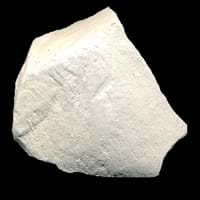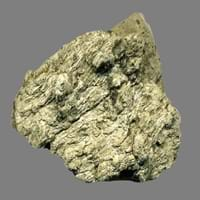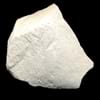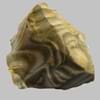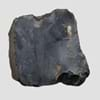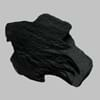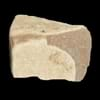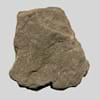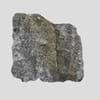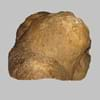Definition
Chalk is a soft, white, powdery limestone consisting mainly of fossil shells of foraminifers
Dacite is a volcanic igneous rock which is rintermediate in composition between andesite and rhyolite
Origin
Unknown
Romania and Moldova, Europe
Discoverer
Unknown
Unknown
Etymology
From old English cealc chalk, lime, plaster; pebble, from Greek khalix small pebble, in English transferred to the opaque, white, soft limestone
From Dacia, a province of the Roman Empire which lay between the Danube River and Carpathian Mountains where the rock was first described
Class
Sedimentary Rocks
Igneous Rocks
Sub-Class
Durable Rock, Soft Rock
Durable Rock, Soft Rock
Group
Not Applicable
Volcanic
Other Categories
Fine Grained Rock, Opaque Rock
Fine Grained Rock, Medium Grained Rock, Opaque Rock
Texture
Clastic or Non-Clastic
Aphanitic to Porphyritic
Color
Grey, White, Yellow
Bluish - Grey, Brown, Grey, Light to Dark Grey
Durability
Durable
Durable
Appearance
Soft
Vesicular
Interior Uses
Decorative Aggregates, Homes, Interior Decoration
Decorative Aggregates, Entryways, Interior Decoration
Exterior Uses
As Building Stone, As Facing Stone, Paving Stone, Garden Decoration
As Building Stone, Paving Stone, Garden Decoration
Other Architectural Uses
Powder
Curbing
Construction Industry
As Dimension Stone, Cement Manufacture, Construction Aggregate, for Road Aggregate, Making natural cement, raw material for manufacture of quicklime and slaked lime, Source of calcium
As Dimension Stone, Construction Aggregate, for Road Aggregate, Landscaping
Medical Industry
Not Yet Used
Not Yet Used
Antiquity Uses
Artifacts, Monuments, Sculpture, Small Figurines
Artifacts
Commercial Uses
Alumina Refineries, Creating Artwork, Drawing on blackboards, Gymnasts, athletes and mountain climbers use for grip, In aquifers, Paper Industry, Production of Lime, Raw material for manufacture of quicklime, slaked lime, Soil Conditioner, Whiting, Whiting material in toothpaste, paint and paper
Commemorative Tablets, Creating Artwork
Types
Not Available
Footwall Dacite, Hanging wall Dacite, Tuff and Biotite Dacite
Features
Clasts are smooth to touch, Is one of the oldest rock, Smooth to touch, Very fine grained rock
Host Rock for Lead, Is one of the oldest rock
Archaeological Significance
Monuments
Used
Not Yet Used
Famous Monuments
Data Not Available
Not Applicable
Sculpture
Used
Not Yet Used
Famous Sculptures
Data Not Available
Not Applicable
Figurines
Used
Not Yet Used
Formation
Chalk is formed from lime mud, which accumulates on the sea floor which is then transformed into rock by geological processes.
Dacitic magma is formed by the subduction of young oceanic crust under a thick felsic continental plate. Further, the Oceanic crust is hydrothermally altered as quartz and sodium are added.
Mineral Content
Calcite, Clay, Clay Minerals, Quartz, Sand
Amphibole, Apatite, Biotite, Feldspar, Garnet, Hornblade, Magnetite, Plagioclase, Pyroxene, Quartz, Zircon
Compound Content
Ca, NaCl, CaO
Ca, Fe, Potassium Oxide, Mg, Potassium, Silicon Dioxide
Types of Metamorphism
Not Applicable
Burial Metamorphism, Cataclastic Metamorphism
Types of Weathering
Biological Weathering, Chemical Weathering
Biological Weathering, Chemical Weathering, Mechanical Weathering
Types of Erosion
Chemical Erosion, Coastal Erosion, Water Erosion
Chemical Erosion
Grain Size
Very fine-grained
Medium to Fine Coarse Grained
Fracture
Not Available
Conchoidal
Porosity
Highly Porous
Less Porous
Luster
Dull
Subvitreous to Dull
Cleavage
Non-Existent
Perfect
Toughness
1
Not Available
Specific Gravity
2.3-2.4
2.86-2.87
Transparency
Opaque
Translucent
Density
2.49-2.50 g/cm3
2.77-2.771 g/cm3
Resistance
Heat Resistant
Heat Resistant, Impact Resistant, Pressure Resistant, Wear Resistant
Deposits in Eastern Continents
Asia
Brunei, India, Indonesia, Malaysia, Singapore, Thailand, Vietnam
Not Yet Found
Africa
Cameroon, Chad, Ghana, Kenya, Malawi, Sudan, Tanzania, Togo, Zambia, Zimbabwe
Not Yet Found
Europe
England, France, Germany, Spain, United Kingdom
France, Greece, Romania, Scotland, Spain
Others
Not Yet Found
Not Yet Found
Deposits in Western Continents
North America
Canada, USA
USA
South America
Colombia
Argentina, Bolivia, Chile, Colombia, Ecuador, Peru, Venezuela
Deposits in Oceania Continent
Australia
Adelaide, New Zealand, Queensland, Tonga, Victoria, Yorke Peninsula
New Zealand, South Australia, Western Australia
All about Chalk and Dacite Properties
Know all about Chalk and Dacite properties here. All properties of rocks are important as they define the type of rock and its application. Chalk belongs to Sedimentary Rocks while Dacite belongs to Igneous Rocks.Texture of Chalk is Clastic or Non-Clastic whereas that of Dacite is Aphanitic to Porphyritic. Chalk appears Soft and Dacite appears Vesicular. The luster of Chalk is dull while that of Dacite is subvitreous to dull. Chalk is available in grey, white, yellow colors whereas Dacite is available in bluish - grey, brown, grey, light to dark grey colors. The commercial uses of Chalk are alumina refineries, creating artwork, drawing on blackboards, gymnasts, athletes and mountain climbers use for grip, in aquifers, paper industry, production of lime, raw material for manufacture of quicklime, slaked lime, soil conditioner, whiting, whiting material in toothpaste, paint and paper and that of Dacite are commemorative tablets, creating artwork.
